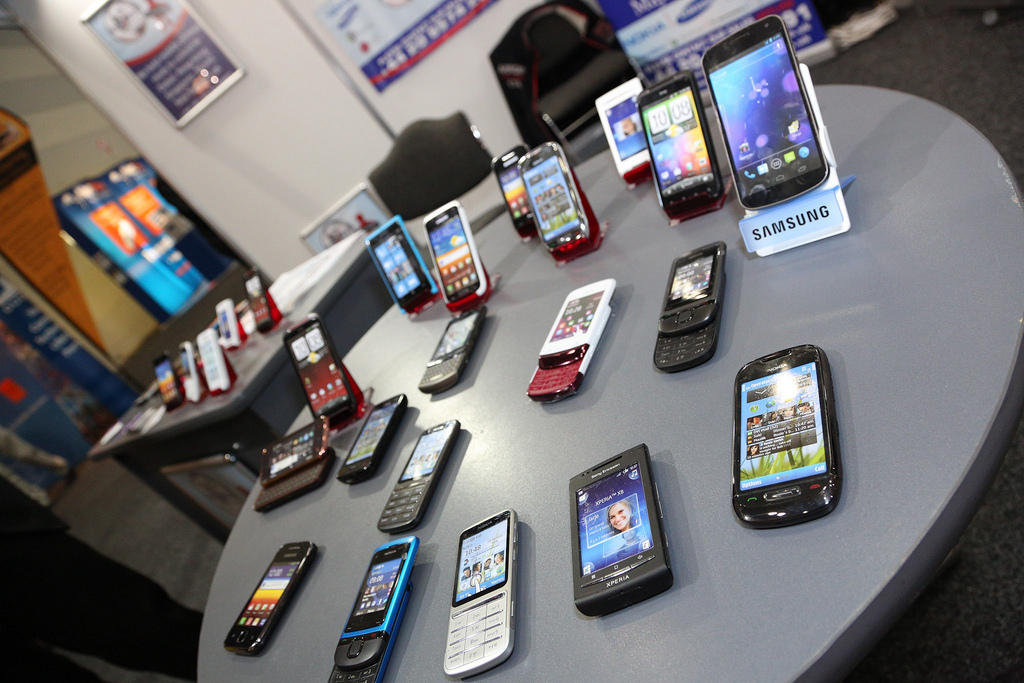“Is technology really helping us progress?”
April 8Technology is part and parcel of everyday life, writes J uliana Chia, 24, a Correspondent from Singapore, who challenges youth to raise questions about inequality of access that puts some students at a disadvantage.
uliana Chia, 24, a Correspondent from Singapore, who challenges youth to raise questions about inequality of access that puts some students at a disadvantage.
The fact is that we are surrounded by technology in our everyday lives. Like it or not, we are increasingly reliant on our smartphones, tablets and computers for everything such as mapping services or checking the bus schedule.
Technology is progressively ingrained into our lives, slowly but surely replacing tasks that we once used to do on pen and paper. In education, technology is more and more becoming part and parcel of development and is a necessary requirement in the learning process. This huge reliance on technology, however, does not mean everyone is granted the same access to technology.
There are 53 members of the Commonwealth. These members come from Africa, Asia, the Americas, Europe and the Pacific – all continents except Antarctica. While this is an encouraging fact displaying diversity, I wish to stress that this heterogeneity of member countries also means there is a large variation in the level of development among them. This implies that the penetration rates of technology also differ across countries.
When I was in primary school in Singapore, owning a mobile phone was a completely unheard-of concept. I remember the need to rush from classroom to canteen – where two public payphones had been installed – in order to contact my parents should I need to update them on dismissal time. It was necessary to rush to avoid the snaking long queues that were sure to form daily during our break time.
Then, during my years of secondary school still in Singapore, I recall a rule being implemented that allowed students to bring our mobile phones to school for use after official school curriculum time. It seemed normal to own a mobile phone at this time.
As I went on to high school and university, technology penetrated into my daily life in almost every aspect. Today, I do not go to class without my laptop in my bag, and it becomes a nuisance to not bring my mobile phone out with me every single day. From something that not everyone owned and could live without, our devices today have managed to shape our lives, and even our personalities. We know the power of social media, and the thought of youths being shaped by technology is indeed frightening.
This, then, begs the question of the unequal distribution and access to technology around the world. In Singapore and many other developed countries, technology is an essential part of education. We get updates and announcements through online portals, read academic journals online and rely on technology to submit assignments online. But what about the other developing Commonwealth countries?
Will the youths be at a disadvantage then? Do all governments and education institutions have the ability and financial resources to install high-speed WIFI connections throughout an entire campus? Will students have the necessary equipment to use technology? And what if they don’t? Are they automatically disadvantaged?
There are stories of children having to stand outside their school compounds simply to tap on the free WIFI that their school offers because they have no Internet access at home.
The need to travel to school, to stand outside, to get WIFI so that assignments can be done, does not happen in Singapore and likely not in other developed countries. But what happens when it does occur in countries with poorer infrastructure and a lower level of development? Do the students – and should they – get penalized for this? They will unlikely receive the same type and level of education as I was privileged to, but it in no way means that they do not deserve it.
I urge more Commonwealth Youths to ensure proper infrastructure is implemented for all to benefit from technology, and to not discriminate those without access to technology. We need to control technology today and not let the reverse occur. Technology should be beneficial, and not the definition of our lives. Education levels differ across Commonwealth countries, but it is imperative that we ensure students who need technology actually get access to it. Otherwise, we are likely to increase the polarisation in education between developed and developing countries.
What is the actual situation in your country? Is technology controlling your life, or are you empowered to take advantage of what technology has to offer?
photo credit: CeBIT 2012 Showfloor Day 3 via photopin (license)
…………………………………………………………………………………………………………………………………………
About me: I am studying in Paris for my Master’s degree in urban policy and planning. I’m interested in anything related to the environment, specifically climate change and sustainability.
I am a youth activist at home in Singapore and I hope to inspire more people to care for our planet Earth.
I enjoy sports, all sorts of food and discovering new cultures through travelling. I would love to be involved in policy planning or field work for developmental projects in the future.
…………………………………………………………………………………………………………………………………………
Opinions expressed in this article are those of the author and do not necessarily represent the views of the Commonwealth Youth Programme. Articles are published in a spirit of dialogue, respect and understanding. If you disagree, why not submit a response?
To learn more about becoming a Commonwealth Correspondent please visit:
http://www.yourcommonwealth.org/submit-articles/commonwealthcorrespondents/
…………………………………………………………………………………………………………………………………………




